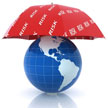Showing Spotlights 1 - 8 of 19 in category All (newest first):
 The Belgian federal government unnecessarily delayed the adoption of the Amending Royal Decree until December 2017 and published it only mid-January 2018. It creates legal uncertainty where it should have been avoided. The Belgian nanomaterials register symbolizes a Belgian exceptionalism in the small world of national nanomaterials registers. Unlike France, Denmark and Sweden, Belgium decided from the very beginning to have three different deadlines for substances, mixtures and articles.
The Belgian federal government unnecessarily delayed the adoption of the Amending Royal Decree until December 2017 and published it only mid-January 2018. It creates legal uncertainty where it should have been avoided. The Belgian nanomaterials register symbolizes a Belgian exceptionalism in the small world of national nanomaterials registers. Unlike France, Denmark and Sweden, Belgium decided from the very beginning to have three different deadlines for substances, mixtures and articles.
Feb 26th, 2018
 Insurance companies are major stakeholders capable of contributing to the safer and more sustainable development of nanotechnologies and nanomaterials. This is owed to the fact that the insurance industry is one of the bearers of potential losses that can arise from the production and use of nanomaterials and nanotechnology applications. Researchers have examined how the insurance market perception of nanotechnology can influence the sustainability of technological advances and insurers? concern for nanotechnology risks. They claim that, despite its role in sustaining technology development in modern society, insurers' perception on nanomaterials has been largely overlooked by researchers and regulators alike.
Insurance companies are major stakeholders capable of contributing to the safer and more sustainable development of nanotechnologies and nanomaterials. This is owed to the fact that the insurance industry is one of the bearers of potential losses that can arise from the production and use of nanomaterials and nanotechnology applications. Researchers have examined how the insurance market perception of nanotechnology can influence the sustainability of technological advances and insurers? concern for nanotechnology risks. They claim that, despite its role in sustaining technology development in modern society, insurers' perception on nanomaterials has been largely overlooked by researchers and regulators alike.
Dec 16th, 2014
 A majority of the members of the Environmental, Public Health and Food Safety (EHS) committee of the European Parliament approved several amendments to the draft regulation on novel foods, including one imposing a moratorium on novel foods containing nanomaterials. The EHS committee's amendments to the Commission's proposal show that the European Parliament and the European Commission clearly have two different approaches towards the regulation of nanotechnologies.
A majority of the members of the Environmental, Public Health and Food Safety (EHS) committee of the European Parliament approved several amendments to the draft regulation on novel foods, including one imposing a moratorium on novel foods containing nanomaterials. The EHS committee's amendments to the Commission's proposal show that the European Parliament and the European Commission clearly have two different approaches towards the regulation of nanotechnologies.
Dec 3rd, 2014
 On 7th February 2014, the Belgian federal government issued a press release declaring that the draft Royal Decree creating a Belgian register for nanomaterials has been approved. The Royal Decree would enter into force on 1st January 2016 for substances manufactured at the nanoscale and on 1st January 2017 for preparations containing a substance or substances manufactured at the nanoscale. We provide here an overview of this future Belgian nano register and some suggestions to be ready for the 2016 and 2017 deadlines.
On 7th February 2014, the Belgian federal government issued a press release declaring that the draft Royal Decree creating a Belgian register for nanomaterials has been approved. The Royal Decree would enter into force on 1st January 2016 for substances manufactured at the nanoscale and on 1st January 2017 for preparations containing a substance or substances manufactured at the nanoscale. We provide here an overview of this future Belgian nano register and some suggestions to be ready for the 2016 and 2017 deadlines.
Sep 3rd, 2014
 With missing data about the large scale impact of nanotechnology, life cycle assessments of potential nanoproducts should form an integral part of nanotechnology research at early stages of decision making as it can help in the screening of different process alternatives. So far, however, life cycle studies of emerging nanotechnologies have been susceptible to huge uncertainties due to issues of data quality and the rapidly evolving nature of the production processes. A recent paper investigates the suitability of the U.S. regulatory system as a comprehensive package addressing multiple types and uses of engineered nanomaterials over their life cycle.
With missing data about the large scale impact of nanotechnology, life cycle assessments of potential nanoproducts should form an integral part of nanotechnology research at early stages of decision making as it can help in the screening of different process alternatives. So far, however, life cycle studies of emerging nanotechnologies have been susceptible to huge uncertainties due to issues of data quality and the rapidly evolving nature of the production processes. A recent paper investigates the suitability of the U.S. regulatory system as a comprehensive package addressing multiple types and uses of engineered nanomaterials over their life cycle.
Aug 13th, 2013
 The first part of this survey, which we posted yesterday in our Nanowerk Spotlight, introduces nanotechnology policy making and the reasons for its complexity, and offers a panorama of the set of mandatory tools that are currently available to regulate nanotechnologies. The second part, today, provides an outlook of the set of voluntary tools that coexist with the mandatory ones. For the voluntary environmental programs that are in place for nanomaterials, governments are urging companies to submit health and safety information on the nanomaterials they produce or commercialize.
The first part of this survey, which we posted yesterday in our Nanowerk Spotlight, introduces nanotechnology policy making and the reasons for its complexity, and offers a panorama of the set of mandatory tools that are currently available to regulate nanotechnologies. The second part, today, provides an outlook of the set of voluntary tools that coexist with the mandatory ones. For the voluntary environmental programs that are in place for nanomaterials, governments are urging companies to submit health and safety information on the nanomaterials they produce or commercialize.
Apr 4th, 2013
 Complicating things, science is quite divided on how to assess nanotechnology materials and applications. Consequently, as the public discussion about the regulation of nanotechnology in general, and nanomaterials in particular, heats up, emerging opinions on the applicability of existing regulation differ substantially and so do views on which regulatory options best address the current lack of information about environment, health and safety risks of nanomaterials, as well as the regulatory uncertainty and concerns expressed by the politicians, members of the public and industry, and investors. A new, two-part survey outlines the different frameworks policy makers have developed.
Complicating things, science is quite divided on how to assess nanotechnology materials and applications. Consequently, as the public discussion about the regulation of nanotechnology in general, and nanomaterials in particular, heats up, emerging opinions on the applicability of existing regulation differ substantially and so do views on which regulatory options best address the current lack of information about environment, health and safety risks of nanomaterials, as well as the regulatory uncertainty and concerns expressed by the politicians, members of the public and industry, and investors. A new, two-part survey outlines the different frameworks policy makers have developed.
Apr 3rd, 2013
 Nanotechnology can play a significant role in the construction industry and stands at eighth position in terms of most significant areas of applications in nanotechnology. Nanoengineering of cement-based materials can result in outstanding or smart properties. Introduction of nanotechnology in cement industry has the potential to address some of the challenges such as CO2 emissions, poor crack resistance, long curing time, low tensile strength, high water absorption, low ductility and many other mechanical performances.
Nanotechnology can play a significant role in the construction industry and stands at eighth position in terms of most significant areas of applications in nanotechnology. Nanoengineering of cement-based materials can result in outstanding or smart properties. Introduction of nanotechnology in cement industry has the potential to address some of the challenges such as CO2 emissions, poor crack resistance, long curing time, low tensile strength, high water absorption, low ductility and many other mechanical performances.
Dec 17th, 2012
 The Belgian federal government unnecessarily delayed the adoption of the Amending Royal Decree until December 2017 and published it only mid-January 2018. It creates legal uncertainty where it should have been avoided. The Belgian nanomaterials register symbolizes a Belgian exceptionalism in the small world of national nanomaterials registers. Unlike France, Denmark and Sweden, Belgium decided from the very beginning to have three different deadlines for substances, mixtures and articles.
The Belgian federal government unnecessarily delayed the adoption of the Amending Royal Decree until December 2017 and published it only mid-January 2018. It creates legal uncertainty where it should have been avoided. The Belgian nanomaterials register symbolizes a Belgian exceptionalism in the small world of national nanomaterials registers. Unlike France, Denmark and Sweden, Belgium decided from the very beginning to have three different deadlines for substances, mixtures and articles.
 Subscribe to our Nanotechnology Spotlight feed
Subscribe to our Nanotechnology Spotlight feed



